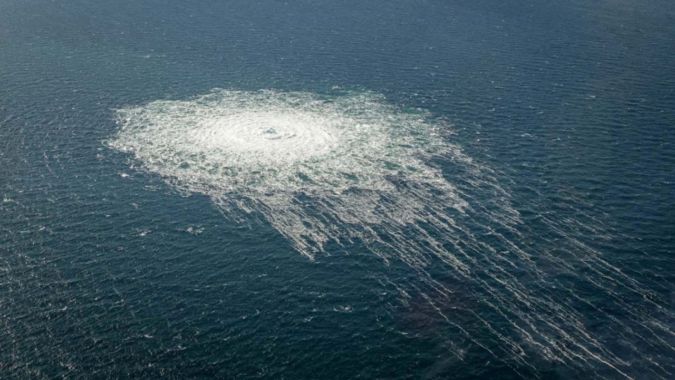WASHINGTON: New intelligence reviewed by US officials suggests that a pro-Ukrainian group carried out the attack on the Nord Stream pipelines last year, a step toward determining responsibility for an act of sabotage that has confounded investigators on both sides of the Atlantic for months. US officials said that they had no evidence President Zelensky of Ukraine or his top lieutenants were involved in the operation.
The brazen attack on the natural gas pipelines, which link Russia to Western Europe, fuelled public speculation about who was to blame. Ukraine and its allies have been seen by some officials as having the most logical potential motive to attack the pipelines. They have opposed the project for years, calling it a national security threat because it would allow Russia to sell gas more easily to Europe. Ukrainian government and military intelligence officials say they had no role in the attack.
US officials said there was much they did not know about the perpetrators and their affiliations. The review of newly collected intelligence suggests they were opponents of President Putin of Russia, but does not specify the members of the group, or who directed or paid for the operation. US officials declined to disclose the nature of the intelligence, how it was obtained or any details of the strength of the evidence it contains. They have said that there are no firm conclusions about it, leaving open the possibility that the operation might have been conducted off the books by a proxy force with connections to the Ukrainian government or its security services.
Some initial US and European speculation centred on possible Russian culpability, though it is unclear what motivation the Kremlin would have in sabotaging the pipelines given that they have been an important source of revenue and a means for Moscow to exert influence over Europe. US officials say they have not found any evidence of involvement by the Russian government in the attack. Officials who have reviewed the intelligence said they believed the saboteurs were most likely Ukrainian or Russian nationals, or some combination of the two. US officials said no American or British nationals were involved.
The brazen attack on the natural gas pipelines, which link Russia to Western Europe, fuelled public speculation about who was to blame. Ukraine and its allies have been seen by some officials as having the most logical potential motive to attack the pipelines. They have opposed the project for years, calling it a national security threat because it would allow Russia to sell gas more easily to Europe. Ukrainian government and military intelligence officials say they had no role in the attack.
US officials said there was much they did not know about the perpetrators and their affiliations. The review of newly collected intelligence suggests they were opponents of President Putin of Russia, but does not specify the members of the group, or who directed or paid for the operation. US officials declined to disclose the nature of the intelligence, how it was obtained or any details of the strength of the evidence it contains. They have said that there are no firm conclusions about it, leaving open the possibility that the operation might have been conducted off the books by a proxy force with connections to the Ukrainian government or its security services.
Some initial US and European speculation centred on possible Russian culpability, though it is unclear what motivation the Kremlin would have in sabotaging the pipelines given that they have been an important source of revenue and a means for Moscow to exert influence over Europe. US officials say they have not found any evidence of involvement by the Russian government in the attack. Officials who have reviewed the intelligence said they believed the saboteurs were most likely Ukrainian or Russian nationals, or some combination of the two. US officials said no American or British nationals were involved.
